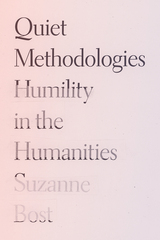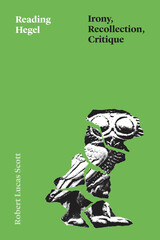3 books about Pharmaceutical policy
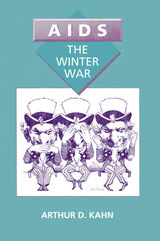
AIDS, The Winter War
Arthur Kahn
Temple University Press, 1993
"The most complete history of how AIDS treatment activism began--and an appalling look at the government AIDS mismanagement."
--John S. James, AIDS Treatment News
Arthur Kahn traces the history of the struggle for recognition of and action on behalf of the AIDS epidemic. He describes the heroic struggle for survival by persons with AIDS and their allies for survival. He documents the sophisticated and effective mobilization of AIDS activists in the face of apathy from the Reagan and Bush administrations.
Kahn presents a case study of the difficulties involved in bringing new drugs for AIDS to U.S. markets. He outlines the frustrating attempts to promote egg lecithin as the potential medicine for HIV patients after its use showed some signs of success in Israel. Obstruction by the federal bureaucracy, greed and incompetence on the part of the drug industry, stonewalling by scientific mandarins, and impediments to evaluation testing--these are shown to be the cruel realities faces by patients and activists.
After setting this background, Kahn details the work of President Reagan's commission on AIDS. Although news of the establishment of this committee was met with scorn and cynicism, the results of its study were both effective and humane. Led by Admiral James Watkins, whose sensitivity won the respect of both commissions members and gay activists, the Commission on the Human Immunodeficiency Virus (HIV) Epidemic issued a final report that seriously addressed the ramifications of the epidemic for American society as a whole.
"In persuasive detail...Kahn demonstrates [that] the struggle against AIDS requires a continuous fight against vested interests that have little regard for alternative ideas and against egotists who put self-aggrandizement above a worldwide crisis.... Arthur Kahn's book presents the history of the clinical struggle and identifies heroes, many of whom have died fighting for all of us. Their efforts must be recognized. Their struggle is not over."
--William Regelson, M.D., Professor, College of Medicine, Virginia Commonwealth University (from the Introduction)
[more]
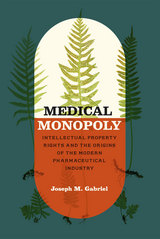
Medical Monopoly
Intellectual Property Rights and the Origins of the Modern Pharmaceutical Industry
Joseph M. Gabriel
University of Chicago Press, 2014
During most of the nineteenth century, physicians and pharmacists alike considered medical patenting and the use of trademarks by drug manufacturers unethical forms of monopoly; physicians who prescribed patented drugs could be, and were, ostracized from the medical community. In the decades following the Civil War, however, complex changes in patent and trademark law intersected with the changing sensibilities of both physicians and pharmacists to make intellectual property rights in drug manufacturing scientifically and ethically legitimate. By World War I, patented and trademarked drugs had become essential to the practice of good medicine, aiding in the rise of the American pharmaceutical industry and forever altering the course of medicine.
Drawing on a wealth of previously unused archival material, Medical Monopoly combines legal, medical, and business history to offer a sweeping new interpretation of the origins of the complex and often troubling relationship between the pharmaceutical industry and medical practice today. Joseph M. Gabriel provides the first detailed history of patent and trademark law as it relates to the nineteenth-century pharmaceutical industry as well as a unique interpretation of medical ethics, therapeutic reform, and the efforts to regulate the market in pharmaceuticals before World War I. His book will be of interest not only to historians of medicine and science and intellectual property scholars but also to anyone following contemporary debates about the pharmaceutical industry, the patenting of scientific discoveries, and the role of advertising in the marketplace.
Drawing on a wealth of previously unused archival material, Medical Monopoly combines legal, medical, and business history to offer a sweeping new interpretation of the origins of the complex and often troubling relationship between the pharmaceutical industry and medical practice today. Joseph M. Gabriel provides the first detailed history of patent and trademark law as it relates to the nineteenth-century pharmaceutical industry as well as a unique interpretation of medical ethics, therapeutic reform, and the efforts to regulate the market in pharmaceuticals before World War I. His book will be of interest not only to historians of medicine and science and intellectual property scholars but also to anyone following contemporary debates about the pharmaceutical industry, the patenting of scientific discoveries, and the role of advertising in the marketplace.
[more]
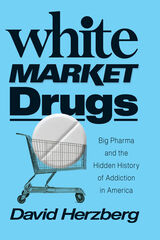
White Market Drugs
Big Pharma and the Hidden History of Addiction in America
David Herzberg
University of Chicago Press, 2020
The contemporary opioid crisis is widely seen as new and unprecedented. Not so. It is merely the latest in a long series of drug crises stretching back over a century. In White Market Drugs, David Herzberg explores these crises and the drugs that fueled them, from Bayer’s Heroin to Purdue’s OxyContin and all the drugs in between: barbiturate “goof balls,” amphetamine “thrill pills,” the “love drug” Quaalude, and more. As Herzberg argues, the vast majority of American experiences with drugs and addiction have taken place within what he calls “white markets,” where legal drugs called medicines are sold to a largely white clientele.
These markets are widely acknowledged but no one has explained how they became so central to the medical system in a nation famous for its “drug wars”—until now. Drawing from federal, state, industry, and medical archives alongside a wealth of published sources, Herzberg re-connects America’s divided drug history, telling the whole story for the first time. He reveals that the driving question for policymakers has never been how to prohibit the use of addictive drugs, but how to ensure their availability in medical contexts, where profitability often outweighs public safety. Access to white markets was thus a double-edged sword for socially privileged consumers, even as communities of color faced exclusion and punitive drug prohibition. To counter this no-win setup, Herzberg advocates for a consumer protection approach that robustly regulates all drug markets to minimize risks while maintaining safe, reliable access (and treatment) for people with addiction.
Accomplishing this requires rethinking a drug/medicine divide born a century ago that, unlike most policies of that racially segregated era, has somehow survived relatively unscathed into the twenty-first century.
By showing how the twenty-first-century opioid crisis is only the most recent in a long history of similar crises of addiction to pharmaceuticals, Herzberg forces us to rethink our most basic ideas about drug policy and addiction itself—ideas that have been failing us catastrophically for over a century.
These markets are widely acknowledged but no one has explained how they became so central to the medical system in a nation famous for its “drug wars”—until now. Drawing from federal, state, industry, and medical archives alongside a wealth of published sources, Herzberg re-connects America’s divided drug history, telling the whole story for the first time. He reveals that the driving question for policymakers has never been how to prohibit the use of addictive drugs, but how to ensure their availability in medical contexts, where profitability often outweighs public safety. Access to white markets was thus a double-edged sword for socially privileged consumers, even as communities of color faced exclusion and punitive drug prohibition. To counter this no-win setup, Herzberg advocates for a consumer protection approach that robustly regulates all drug markets to minimize risks while maintaining safe, reliable access (and treatment) for people with addiction.
Accomplishing this requires rethinking a drug/medicine divide born a century ago that, unlike most policies of that racially segregated era, has somehow survived relatively unscathed into the twenty-first century.
By showing how the twenty-first-century opioid crisis is only the most recent in a long history of similar crises of addiction to pharmaceuticals, Herzberg forces us to rethink our most basic ideas about drug policy and addiction itself—ideas that have been failing us catastrophically for over a century.
[more]
READERS
Browse our collection.
PUBLISHERS
See BiblioVault's publisher services.
STUDENT SERVICES
Files for college accessibility offices.
UChicago Accessibility Resources
home | accessibility | search | about | contact us
BiblioVault ® 2001 - 2025
The University of Chicago Press



